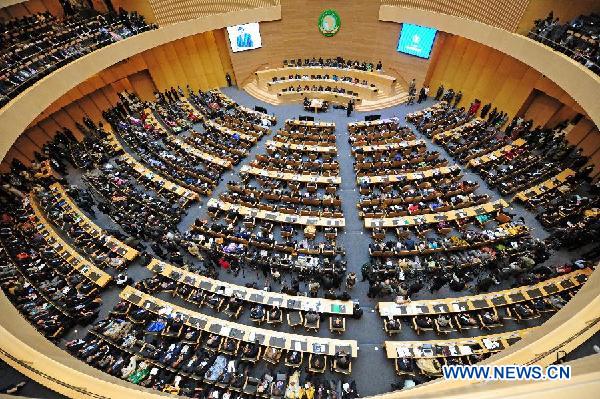
ADDIS ABABA - The African Union agreed Monday to readmit Morocco 33 years after it quit the bloc, following a difficult debate over the status of Western Sahara, according to presidents attending the summit.
"Morocco is now a full member of the African Union. There was a very long debate but 39 of our 54 states approved the return of Morocco, even if the Western Sahara question remains," Senegalese President Macky Sall told journalists.
"As we have said, if the family grows bigger, we can find solutions as a family," he added.
Liberia's President Ellen Johnson Sirleaf confirmed that "the majority of the member states have accepted Morocco's application to rejoin the African Union."
"Africa wants to speak in one voice. We need all African countries to be a part of that voice."
Delegates attending the debate described an emotional and tense discussion, with Algeria and South Africa against the re-admission of Morocco. These countries have long supported the Western Sahara's Polisario movement.
Morocco maintains that the former Spanish colony under its control is an integral part of the kingdom, while the Polisario Front, which campaigns for the territory's independence, demands a referendum on self-determination. A refendum that the United Nations deemed impossible to organise because of the complexity of the nomadic population of the territory and the eligibility of voters.
The AU seems to have decided to leave the resolution of the Western Sahara question for another day, hoping that with Morocco back in the fold they can better advance the dossier.
"I think that one we're going to leave that until we have more chance to discuss it," said Johnson-Sirleaf.
Morocco left the organisation in 1984, after it recognised the independence of Western Sahara, regarded by Morocco as part of its historic territory.
It was the only country in Africa that was not a member of the continental body.
AU leaders also voted for Chadian Foreign Minister Moussa Faki Mahamat to be the next head of the AU commission.
Mr Faki garnered 39 votes in a hotly contested election at the ongoing heads of state summit in the city.
Analysts say he was considered an outsider but being at the forefront of the fight against Islamist militants in Nigeria, Mali and the Sahel may have worked in his favour.
Dlamini-Zuma, who is tipped as a replacement for her ex-husband, Jacob Zuma, at the helm of South Africa’s ruling African National Congress (ANC) this year, was due to end her term in July last year but had to extend her time when the AU failed to reach agreement on a successor.
Her election 4-1/2 years ago after intense lobbying by South Africa rankled many countries because it breached an unwritten rule preventing major states holding the AU chair.
During her time in charge, the medical doctor has focused on reforming the AU’s dysfunctional internal bureaucracy and drawing up a long-term for improving the lives of Africa’s marginal citizens, especially women and children. However, she has been criticized for failing to heal the rifts created by her election and not doing more to prevent conflict in countries such as South Sudan, which the United Nations says is tilting towards genocide.
She had s dismal record at the helm of the African Union.


